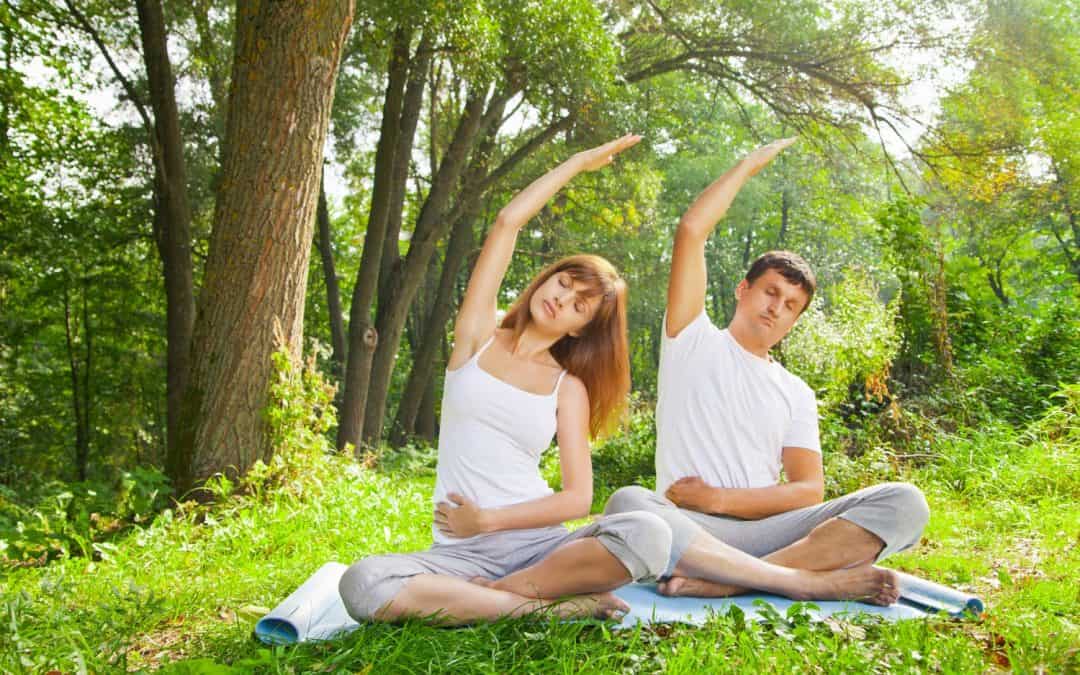Exercise is one of three pillars of life. Food and sleep are the other two. When used correctly, all three are the deepest forms of medicine. Our world is blessed with so much medicine: healing, meditation, touch therapy, essential oils, medicinal herbs, acupuncture, homeopathy, Qi Kong, Tai Qi, yoga and you name it… however, none of the above medicines could ever compensate for no exercise. Exercise is indispensible. Exercise is a privilege we can never forfeit.
Exercise is in the essence of life. It provides a unique effect on our overall wellbeing. The benefits of exercise are numerous, below are some major examples:
Boost happiness levels
Builds confidence, courage, and determination and helps to pursue your goals
Reduce your risk of heart disease and other degenerative diseases
Improve your sleep
Overcome fatigue and increase your energy levels
Increase strength and flexibility
Improve memory
Improve immunity so you are less susceptible to disease
How much and what kind of exercise should I do?
Exercise should be appropriate for one’s own constitution. Theoretically, Kapha people can perform the most strenuous exercise, Pitta a medium amount and Vata a smaller amount of gentler exercise.
Exercise can be divided into three realms: aerobic (endurance), strength and mobility (flexibility).All three types of exercise are essential for all three body types, though priorities for each will be different:
Kapha people priorities are first aerobic, followed by mobility and strength. Kapha people whom are heavy need more motion for a balancing sense of lightness. A weekly exercise plan could include 2-4 sessions of endurance training (HIIT, cross-fit, tennis, biking, martial arts, brisk walking, etc.), and 1-2 classes of Yoga/Tai QI.
Pitta people priorities are first mobility, followed by strength and aerobic. Pitta people whom are fast and tight need more stretch, release and flexibility for unwinding and cooling down. A weekly exercise plan could include 2-3 sessions of Yoga/Tai Chi/dance and 1-2 sessions of mixed strength endurance training (swimming is especially good).
Vata people priorities are first Strength, followed by mobility and aerobic. Vata people whom are lean and dry need the extra muscle to build their protective shield and presence in their body. A weekly exercise plan could include 2 strength workouts at home or at the gym (using body weight is great, or mix with equipment), and 2 Yoga/Tai Qi/dance classes.
Physiology and pathology of exercise
Gentle physical activities hasten the removal of bodily wastes and the repair of bodily tissues, enlivening the cells of the body and the feelings of joy. Physical exercise promotes stamina, regulates the digestive fire and increases longevity. During activity, more air is inhaled into the lungs, and the rate of purification of the blood increases. The heart, working faster, pumps the purified blood through the entire organism. As a result bodily wastes and phlegm are excreted at an accelerated rate, which, in turn, facilitates the production of new tissues.Through ample, but not excessive physical exercise, sweat is produced, which invigorates the skin and encourages decongestion in the lungs, kidneys, liver and spleen.
A light sweat is beneficial, while ample sweat depletes you. Not only by dehydrating you, but also by depleting your body of vital nutrients. Even though it looks like water, sweat is more akin to blood. It contains salt, potassium, calcium, and magnesium, as well as important trace minerals like zinc. Your body has already worked hard to digest, absorb, and infuse precious vitamins and minerals in your blood. Be careful not to waste them! Preserve minerals by limiting the amount you sweat. A light sweat is okay. But if you’re dripping, you might be overdoing it.
Moderate sweating is beneficial for heavy Kapha people. Dry Vata people have to be more cautious. Hot Pitta people are the most susceptible to excess sweating and heat exhaustion. Too much sweating can cause Pitta to overheat and become dizzy, angry, or have a blood pressure spike.
Exercising is contraindicated after meals, sexual activity and during illness.

